
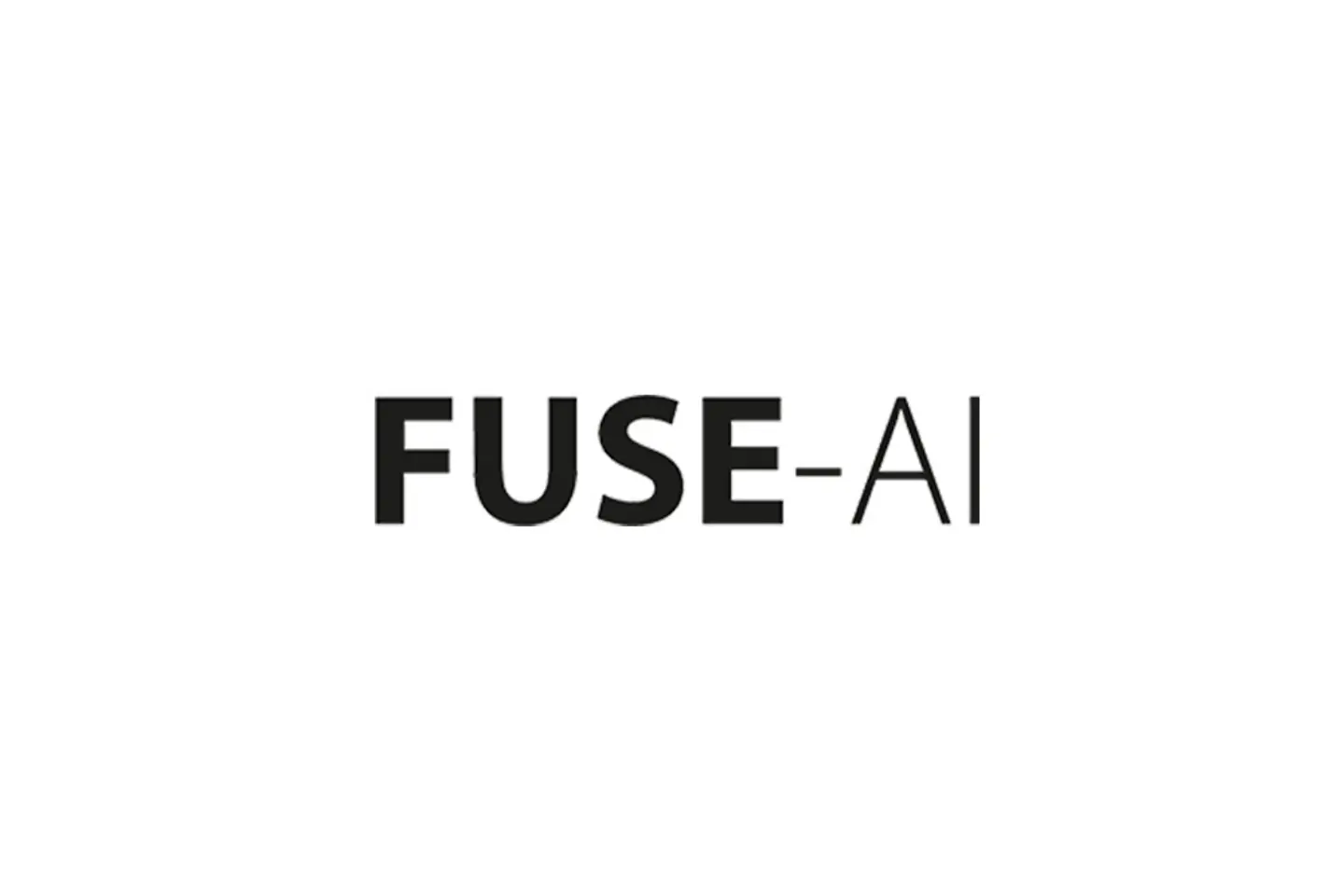
Fuse-AI is making medical diagnosis easier with artificial intelligence. A second opinion from the Open Telekom Cloud saves radiologists time, improves the quality of their diagnoses and reduces costs.
The Hamburg-based entrepreneurs founded their start-up in 2015 and developed artificial intelligence that can detect indications of cancer – such as carcinomas – on MRI scan and assess whether a tumor is benign or malignant. And that doesn’t just save doctors time. “The biggest advantage is the improved quality of a diagnosis,” says Maximilian Waschka, one of the four Fuse-AI founders. “Our algorithm helps radiologists notice abnormalities on thousands of images more reliably.” The start-up estimates that its e-health solution can save health insurers at least 10 percent of the costs associated with MRI examinations.
“In the future, we will help to detect many common illnesses much more quickly, comprehensively, and reliably with the help of the Open Telekom Cloud," says Sabrina Reimers-Kipping, PhD biochemist and co-founder of Fuse-AI. “Not only does this reduce the workload of the doctor and the costs for the healthcare system, it also increases the chances of recovery for the patients. Because the earlier diseases are detected, the better the chance of a recovery.”
The benefits at a glance
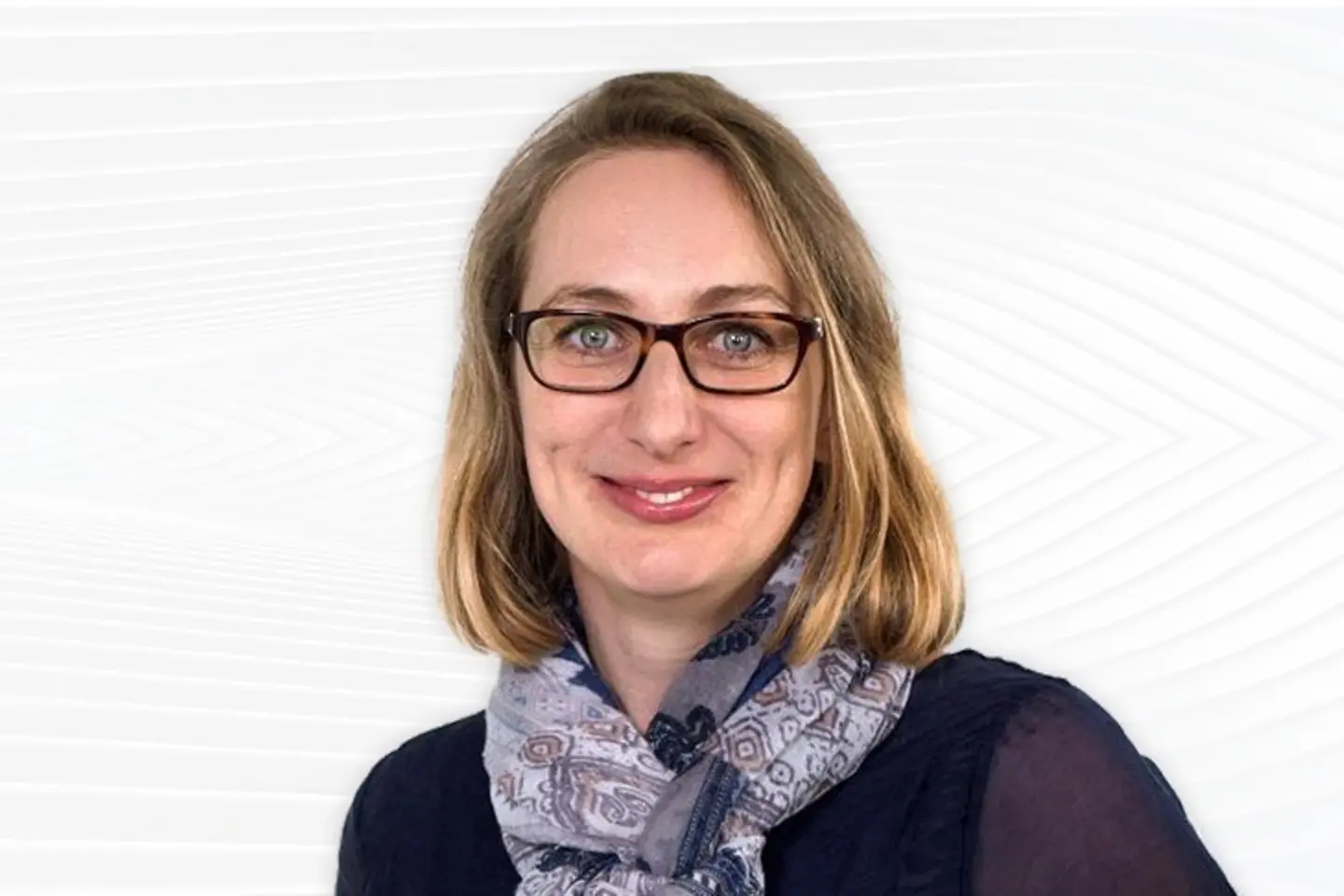
With help from the Open Telekom Cloud we are making it easier to detect many widespread diseases more reliably and faster. We’re not just reducing the effort and costs involved, we’re also increasing a patient’s chance of recovery thanks to artificial intelligence.
Dr. Sabrina Reimers-Kipping, doctorated Biochemist and Fuse-AI Co-Founder
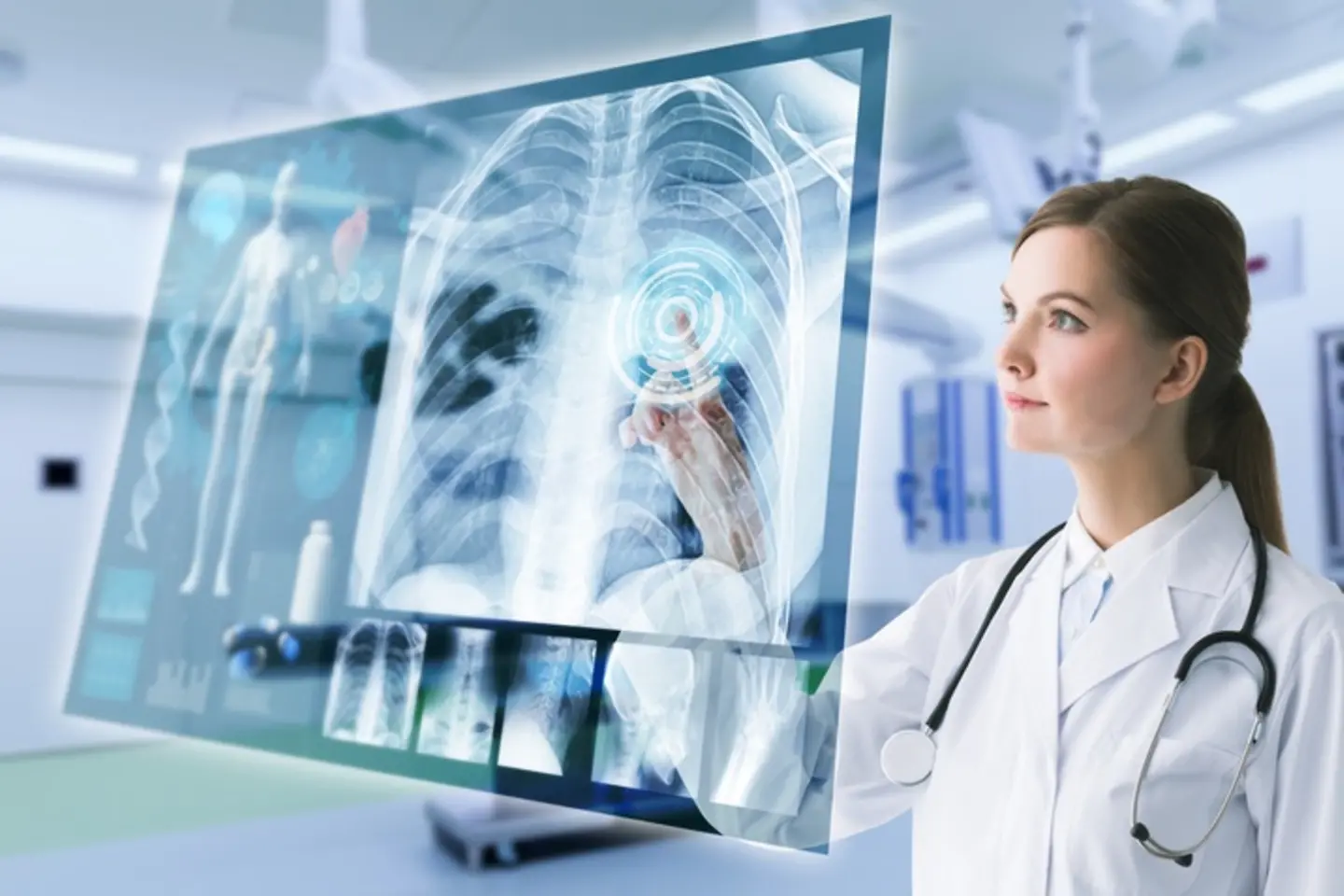
Radiologists don’t have an easy job: Each day, they have to analyze several thousand x-rays and other tomographic images. A single MRI (magnetic resonance imagery) scan creates around 2,000 pictures. A diagnosis requires the utmost concentration, from the first to final image. After all, any mistake could have life-threatening consequences.
The founders of the start-up Fuse-AI want to ease this challenge with their innovative electronic health (e-health for short) solution. They have developed artificial intelligence that helps doctors detect cancer. “The goal is to give radiologists a computer-assisted second opinion that makes their job easier,” says Waschka.
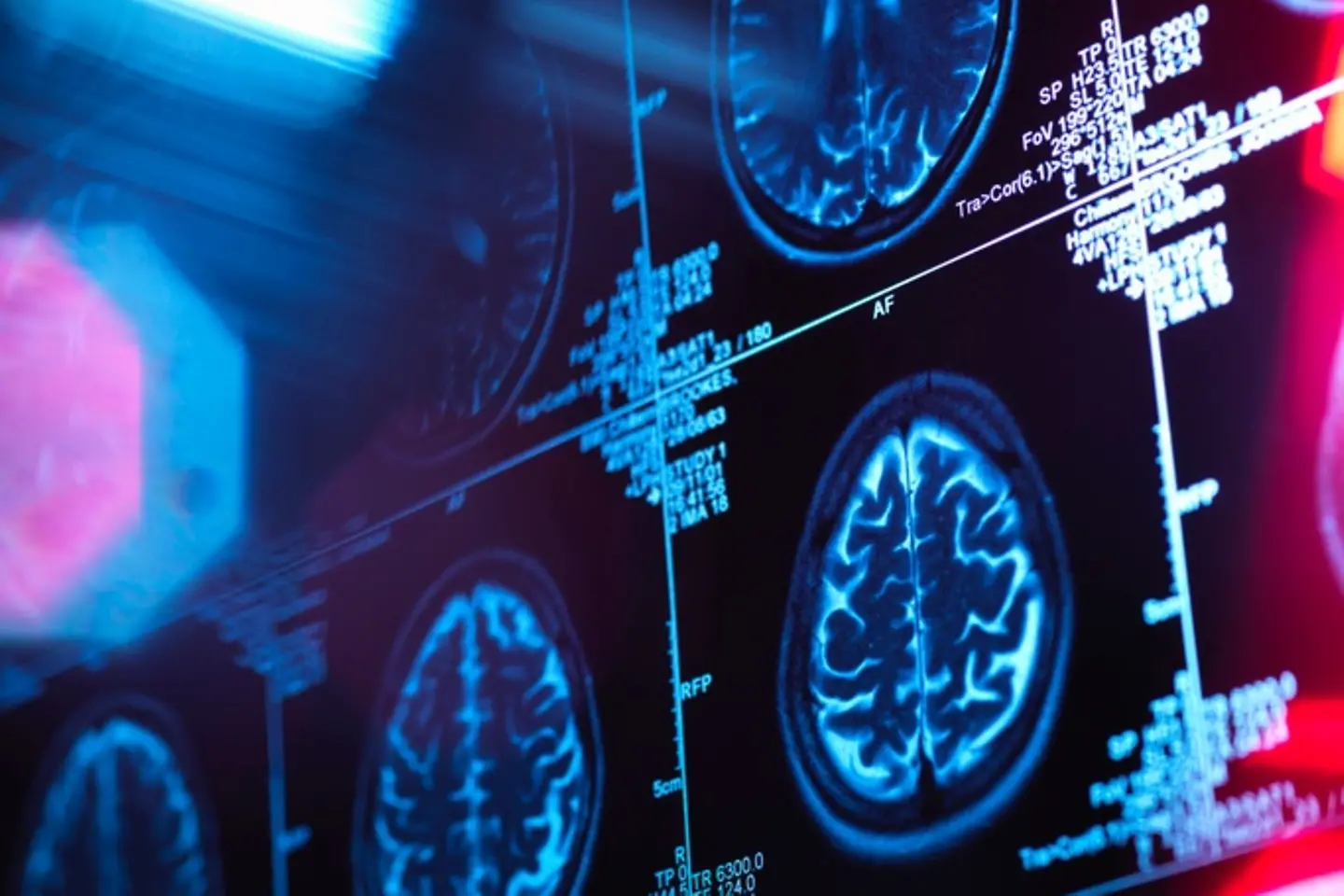
The northern German start-up relies on IT resources from the Open Telekom Cloud for its extensive medical analysis. The MRI scans are sent encrypted via the Internet to Deutsche Telekom’s highly secure data centers in the eastern German state of Saxony-Anhalt, where they are then analyzed. The intelligent algorithm notes any abnormalities, adds metadata to the images and then sends it back to the radiologist’s computer system. The doctor can then use the notes and metadata to make a faster and more accurate diagnosis.
The four entrepreneurs submitted their idea to TechBoost, Deutsche Telekom’s program for promising start-ups with software-based business models, and were accepted. Since then, the company has benefited from €100,000 worth of IT resources from the Open Telekom Cloud. “The Open Telekom Cloud is a wonderful instrument giving us both the flexibility and scalability necessary to realize this kind of solution,” says Dirk Schäfer, a machine learning expert and co-founder of Fuse-AI.
But detecting carcinomas on MRI scans is just the beginning. Fuse-AI is already planning to expand into other solutions. The company’s founders have developed together with dermatologists a so-called digital dermatoscope to make skin cancer detection faster and more accurate. The principle is the same with MRI scans: The dermatoscope photographs the skin’s surface of a patient. An intelligent algorithm in the cloud then analyzes the images and the system alerts the physician to any abnormalities it discovers.
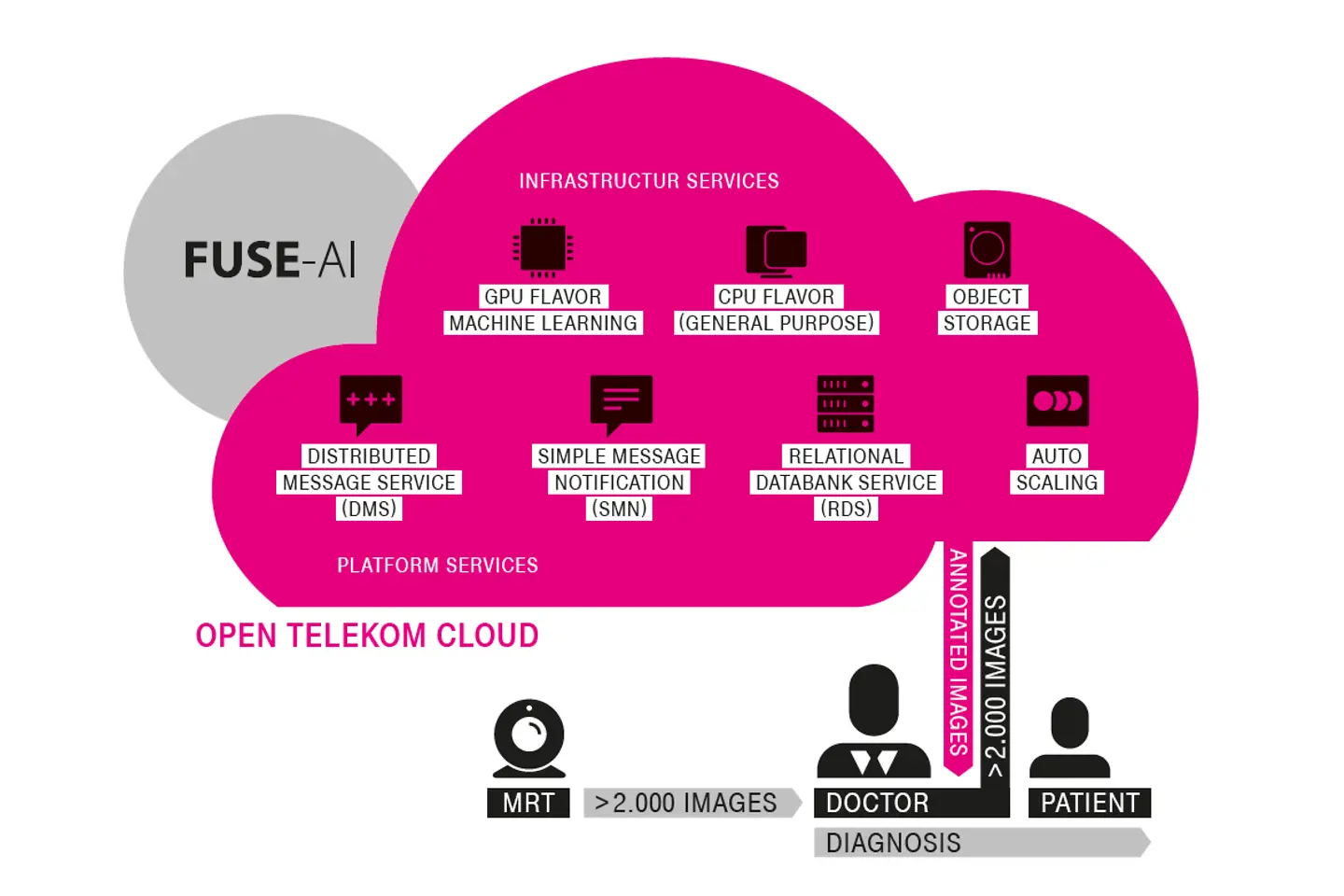
Fuse-AI applies big data analytics to medical diagnosis. The start-up’s artificial intelligence analyzes MRI scans, notes possible carcinomas and assesses whether a tumor is benign or malignant – it’s a second medical opinion from the Open Telekom Cloud. That makes a radiologist’s job easier, saves time, improves the quality of a diagnosis and reduces healthcare costs.